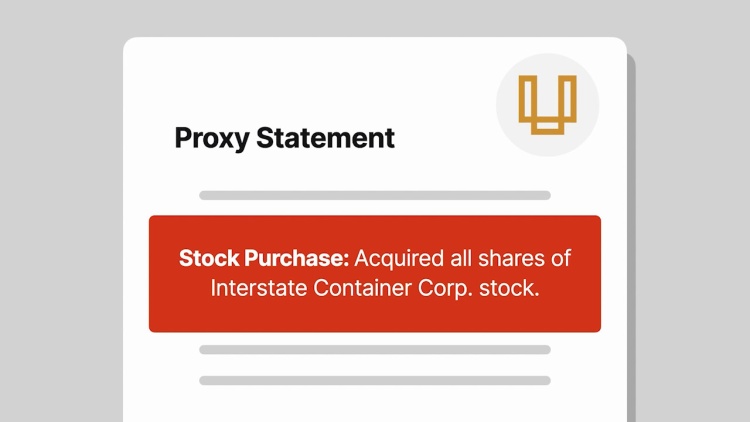Applestein v. United Board & Carton Corp.
New Jersey Superior Court, Chancery Division
159 A.2d 146 (1960)
- Written by John Caddell, JD
Facts
United Board and Carton Corporation (United) (defendant) was a publicly traded company with over 1,000 shareholders. Interstate Container Corporation (Interstate) (defendant) was wholly owned by Saul Epstein (defendant). In July 1959, United and Interstate entered into an agreement they labeled a stock exchange agreement. Under its terms, United would acquire all the shares of Interstate and would assume its liabilities. In exchange, Epstein would receive 40 percent of the shares of United. Interstate would be dissolved. Four new directors would be added to the board of United, including Epstein, and Epstein would be in effective control of the board. United’s proxy statement on the issue stated that since the transaction was a stock purchase and not a merger, United’s dissenting shareholders were not entitled to an appraisal of their shares and only a majority vote of shareholders was required to approve it. Dissenting shareholders (plaintiffs) objected and sued United, Interstate and Epstein. They claimed that since the transaction was, in substance, a merger, appraisal rights attached. After cross-motions for summary judgment, the parties submitted by stipulation a single issue for determination: whether the transaction was a de facto merger, entitling United’s shareholders to an appraisal.
Rule of Law
Issue
Holding and Reasoning (Kilkenny, J.)
What to do next…
Here's why 907,000 law students have relied on our case briefs:
- Written by law professors and practitioners, not other law students. 47,100 briefs, keyed to 996 casebooks. Top-notch customer support.
- The right amount of information, includes the facts, issues, rule of law, holding and reasoning, and any concurrences and dissents.
- Access in your classes, works on your mobile and tablet. Massive library of related video lessons and high quality multiple-choice questions.
- Easy to use, uniform format for every case brief. Written in plain English, not in legalese. Our briefs summarize and simplify; they don’t just repeat the court’s language.





